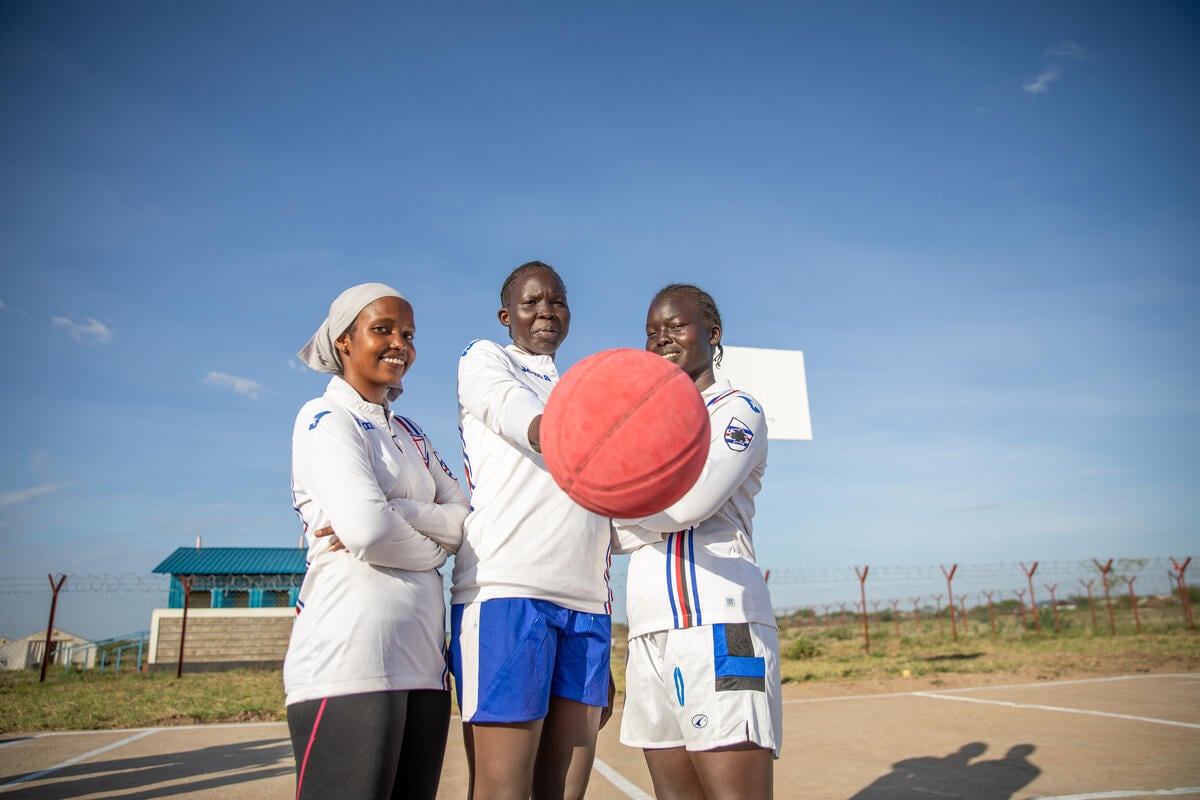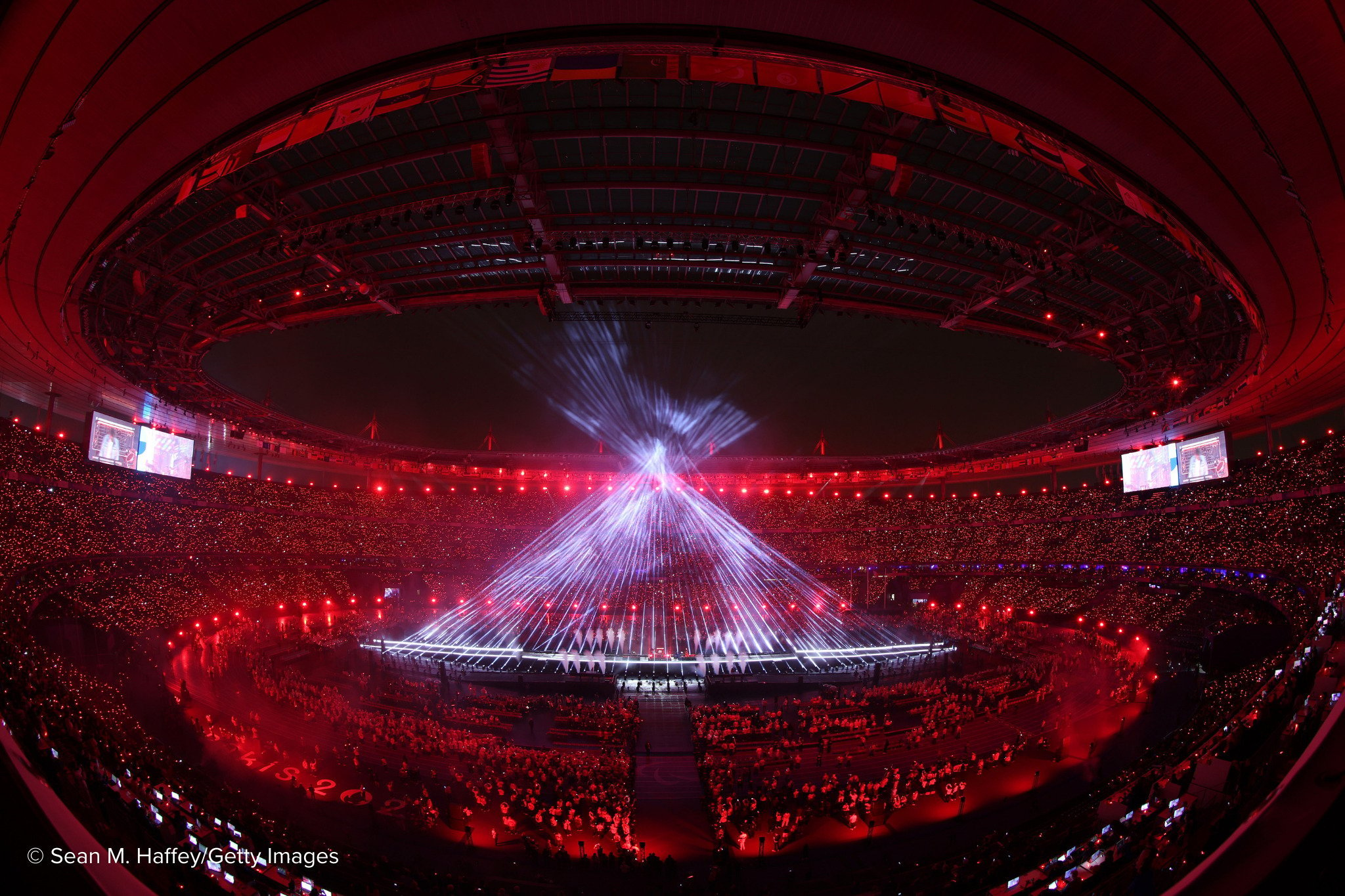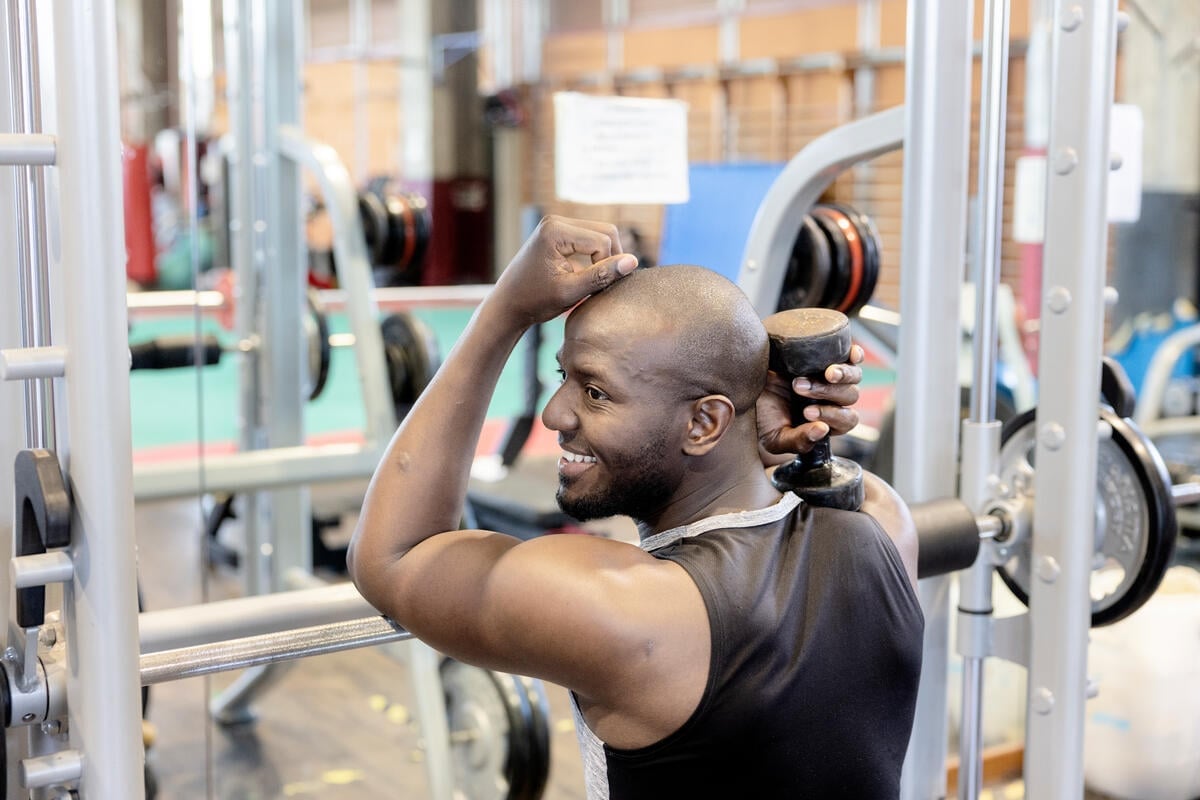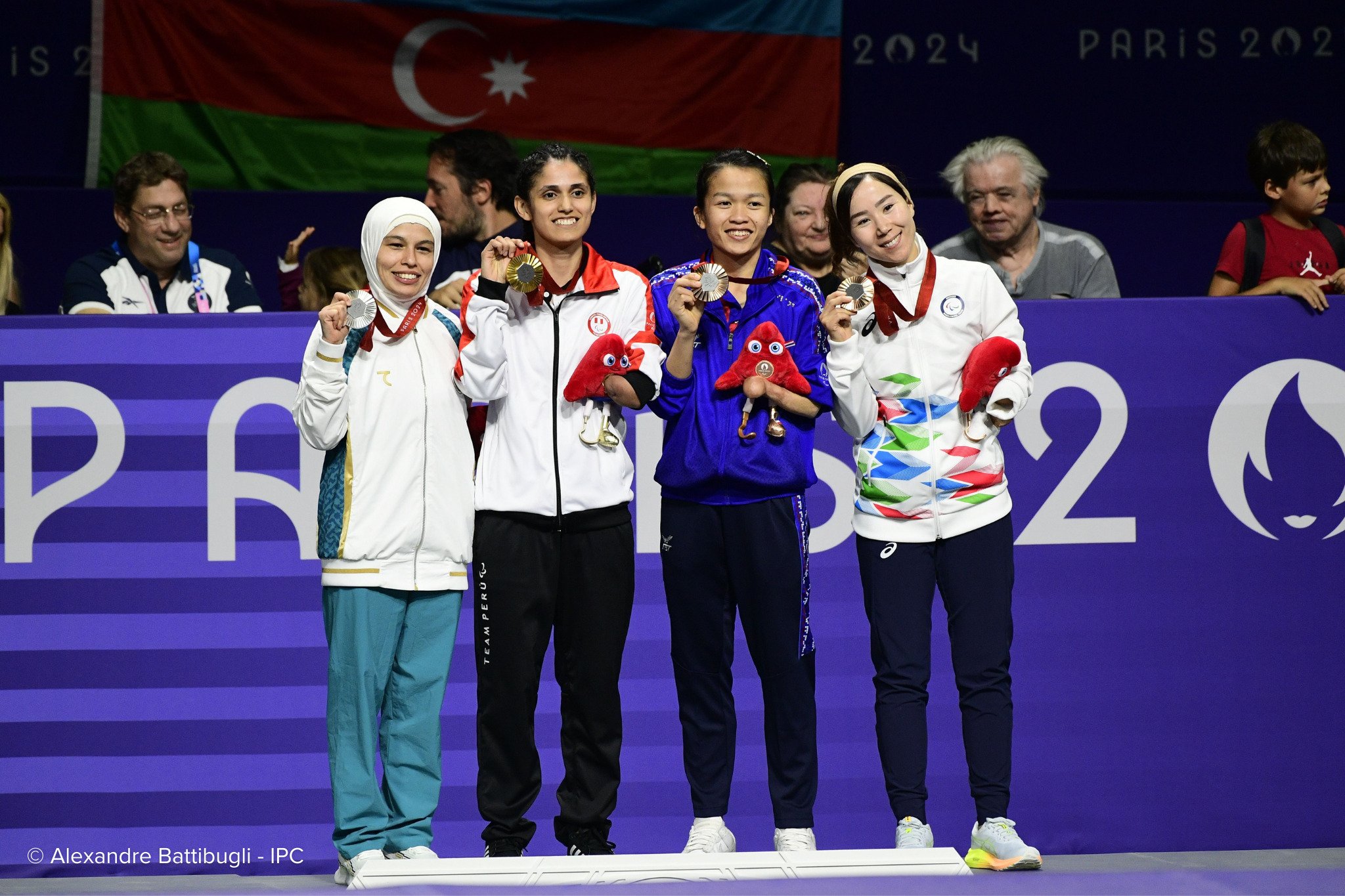IPC unveils largest Refugee Paralympic Team ever for Paris 2024
IPC unveils largest Refugee Paralympic Team ever for Paris 2024

Eight athletes will compete across six sports at the Paris 2024 Paralympic Games.
With 50 days to go until the Paris 2024 Paralympic Games, the International Paralympic Committee (IPC) announced the eight athletes and one guide runner who will compete as part of the largest-ever Refugee Paralympic Team (RPT).
Representing more than 120 million forcibly displaced people worldwide, the eight athletes are based in six countries and will compete across six sports – Para athletics, Para powerlifting, Para table tennis, Para taekwondo, Para triathlon, and wheelchair fencing.
Andrew Parsons, IPC President, said: “All Paralympians have stories of incredible resilience but the stories of these athletes and their journeys as refugees surviving war and persecution to compete at the Paralympic Games is off-the-charts awe-inspiring.
“Unfortunately, the world has more than 120 million forcibly displaced people worldwide. Many live in dire conditions. These athletes have persevered and shown incredible determination to get to Paris 2024 and give every refugee around the world hope. The Refugee Paralympic Team shines a spotlight on the transformational impact of sport.”
Filippo Grandi, the UN High Commissioner for Refugees, said: “For a third consecutive Paralympics, a team of determined, inspirational refugee athletes will show the world just what they can achieve if given the chance. Refugees thrive when given the opportunity to use, develop and showcase their skills and talents, in sport and in many other walks of life.
“We at UNHCR are hugely grateful to the IPC as a key player in our growing international partnership to bring sport to refugees. Sport is vital to their mental and physical well-being, as well as their inclusion and integration with the communities that host them.”
The eight Refugee Paralympic Team athletes are:
Zakia Khudadadi (Para taekwondo)
Khudadadi made headlines competing at Tokyo 2020 just days after a harrowing escape from her home country. She now lives in Paris, France, and won the 2023 European Taekwondo Championship in the 47kg category, dedicating her victory to women in her homeland.
Guillaume Junior Atangana (Para athletics)
The vision-impaired sprinter will line up alongside his guide and fellow refugee Donard Ndim Nyamjua. Atangana finished fourth and just missed out on a medal in the 400m T11 at the Tokyo 2020 Paralympic Games. At the Nottwil 2024 Grand Prix Para Athletics event in June with the backing of the RPT, he finished first in the 400m and second in the 100m final. Atangana originally wanted to be a great footballer but turned to athletics when he lost his eyesight. He now lives in the United Kingdom and will compete in the 100m and 400m T11 events in Paris.
Ibrahim Al Hussein (Para triathlon)
Paris 2024 will be Al Hussein’s third successive Paralympic Games representing the Refugee Paralympic Team. After competing in Para swimming previously he will line up in Para triathlon in Paris. At the Rio 2016 Opening Ceremony, Ibrahim – who lost his leg in an explosion while trying to save a friend – was the Refugee Paralympic Team flagbearer.
Salman Abbariki (Para athletics)
Paris 2024 will be Abbariki’s second Paralympic Games having competed in shot put at London 2012. At the 2010 Asian Para Games, he won gold and broke the Asian record.
Hadi Darvish (Para powerlifting)
Darvish’s Paralympic dream started after watching the London 2012 Paralympic Games on television. He spent two years in a refugee camp when he first arrived in Germany. Without a bank account at first, he had trouble finding a sports club that would allow him to train. But he persisted to fulfil his Paralympic ambitions. Supported by the RPT, he won a bronze medal in the men’s up to 80kg event at the Tbilisi 2024 World Cup in June.
Sayed Amir Hossein Pour (Para table tennis)
Pour has lived in different refugee camps away from his family since arriving in Germany. He won two gold medals at the Asian Youth Para Games 2021 in Bahrain.
Amelio Castro Grueso (Wheelchair fencing)
After the death of his mother when he was only 16, Grueso faced further tragedy four years later when he lost the use of his legs in a traffic accident. In hospital recuperating, he vowed to write a book to share his story – but realised that more people would read it if he was a medal-winning athlete. Now living in Italy and supported by the RPT, Grueso travelled to the 2024 Wheelchair fencing America’s Championship in Brazil this May and won bronze in the Men’s Epee Category B, one of his greatest sporting achievements to date.
Hadi Hassanzada (Para taekwondo)
Hassanzada was displaced multiple times searching for a peaceful country to live and faced innumerable dangers before eventually finding safety in Austria. His life has been full of challenges, he says, including the loss of his right hand, but sport has shown him how to turn setbacks into opportunities.
Leading the Refugee Paralympic Team is Chef de Mission Nyasha Mharakurwa, who represented Zimbabwe in wheelchair tennis at the London 2012 Paralympic Games, one of only two athletes to compete there for his country. He has been working directly with members including International Federations on staff at the IPC for the past five years. He called being named Chef de Mission for the RPT “humbling”.
“The Refugee Paralympic Team offers a model for all of us. No matter how difficult their circumstances, these athletes have found a way to compete at the very highest level of Paralympic sport. In these eight athletes and one guide, we have the strongest and best prepared Refugee Paralympic Team in history. They are not just representing the forcibly displaced people worldwide but the world’s 1.2 billion persons with disabilities,” Mharakurwa said.
The Refugee Paralympic Team will compete under the IPC flag and will be the first team to march into the Opening Ceremony on 28 August that will take place along the Champs-Elysees and in Place de la Concorde.
The IPC chooses the members of the team in consultation with International Federations based on several criteria including athletic performance. The athletes’ refugee status, determined by their host country, also needs to be verified by the UN Refugee Agency.
The Paris 2024 Refugee Paralympic Team is supported by Worldwide Paralympic Partner Airbnb, Asics, UNHCR, the French Ministry for Sport and Olympic and Paralympic Games, the Paris 2024 Organizing Committee and CREPS of Reims. The IPC would like to thank them all for their assistance with the team.
The Refugee Paralympic Team had two athletes at Rio 2016 and six at Tokyo 2020.
Notes to editors:
In mid-August, the athletes will be gathering for the Refugee Paralympic Team’s first ever training camp ahead of the Games in the Centre for Resources, Expertise and Sport Performance of Reims (France) thanks to the support of the French Ministry for Sport and Olympic and Paralympic Games. More information will be communicated in due course. Athletes will be available for a limited number of media interviews at that time, both in person and hybrid. Any interested media should contact the Press Attaché for the Refugee Paralympic Team, Teddy Katz. Please e-mail [email protected]
Downloadable content:
Visit the homepage of the Refugee Paralympic Team.









